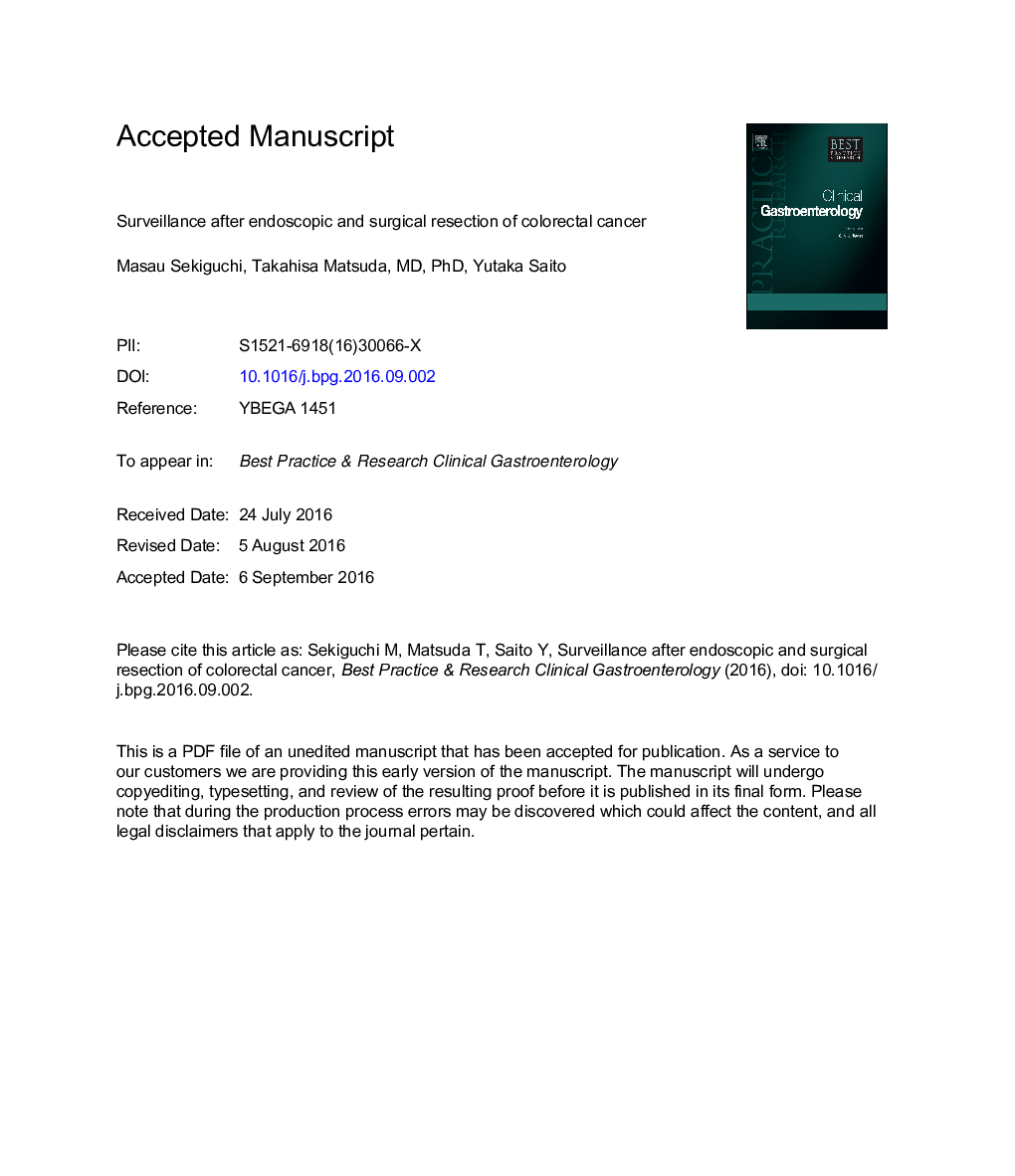| Article ID | Journal | Published Year | Pages | File Type |
|---|---|---|---|---|
| 8720687 | Best Practice & Research Clinical Gastroenterology | 2016 | 47 Pages |
Abstract
With the increase in colorectal cancer burden, surveillance following endoscopic and surgical resection is an essential issue. The aim of surveillance programs is improvement of patient survival by early detection of residual tumor tissue or local recurrence, metachronous colorectal tumors, and metastases. Appropriate surveillance should be determined according to this risk of factors. In current guidelines, only surveillance colonoscopy is recommended after endoscopic resection of polyps with high-grade dysplasia, whereas intensive, multimodality surveillance using colonoscopy, radiological imaging and tumor marker measurements is recommended following surgical resection of invasive colorectal cancer. Detailed recommendations, including the timing of surveillance, are described based on high-quality evidence. However, there are still many unresolved issues for which more high-quality evidence is required.
Related Topics
Health Sciences
Medicine and Dentistry
Endocrinology, Diabetes and Metabolism
Authors
Masau (Staff doctor of Cancer Screening Center, Endoscopy Division, and Division of Screening Technology), Takahisa (Head of Cancer Screening Center and Division of Screening Technology), Yutaka (Head of Endoscopy Division),
